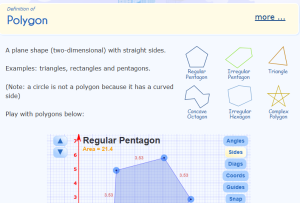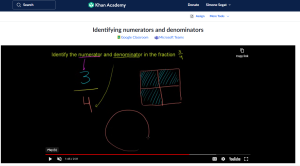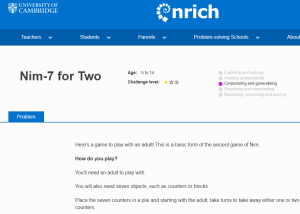At Parkside Primary School, we promote evidence-based practice with consistency of approach, authenticity of context and effective tracking of all student progress. Supporting the Site Learning Plan of the school is done through these core responsibilities.
Intervention:
Along with setting up opportunities for all students to excel in challenging, open-ended mathematics activities, we’re also continuing to support those who need some explicit intervention. QuickSmart Maths (https://simerr.une.edu.au/quicksmart/) is currently running to support some upper primary students in gaining confidence in mathematics fundamentals, and has found considerable success.
The Junior Primary is also supported with the TooSmart! maths intervention program, which supports those in Years 1 to 3. More fundamental conceptual skills are practiced with TooSmart! and a focus on games, process and strategy is emphasised.
Maths at home:
To help your child with mathematics at home, these websites are a great starting place to help understand concepts and clarify thinking.
Maths Is Fun (https://www.mathsisfun.com/definitions/index.html)

Maths Is Fun is a go-to website for definitions as it has a clear and visual illustrated dictionary. There are multiple visual examples of mathematical concepts that are broken down and made easier to understand. There are interactive elements to help students understand the topic or concept and can see its effects.
Khan Academy ( https://www.khanacademy.org/ )

Khan Academy is a free online resource that offers comprehensive math lessons covering topics from basic arithmetic to advanced calculus. The platform features instructional videos, practice exercises, and a personalized learning dashboard that tracks progress. With a wide array of engaging content, Khan Academy makes learning maths enjoyable and accessible.
NRICH (https://nrich.maths.org/parents)

NRICH offers a range of information, games and activities to excite mathematical minds. Many teachers at PPS use this website in their planning and teaching. There are wonderful and simple games to play as a family such as Nim –7 (https://nrich.maths.org/games/nim-7-two).
Supporting Your Child’s Maths Learning
At Parkside Primary School, we believe that parental involvement is crucial in fostering a child’s love for learning, especially in subjects like mathematics. Here are some ways you can support your child’s maths learning at home:
1. Encourage a Growth Mindset
A growth mindset is the belief that abilities and intelligence can be developed through dedication and hard work. This mindset fosters a love for learning and resilience, which are essential for great accomplishments.
- Praise Effort, Not Just Results: Encourage your child by praising their effort and strategies rather than just the outcome. This helps them understand that persistence and hard work lead to improvement.
- Embrace Mistakes as Learning Opportunities: Teach your child that mistakes are a natural part of the learning process. Discuss what went wrong and how they can approach the problem differently next time.
2. Make Maths Fun and Relevant
Integrate maths into everyday activities to make it more engaging and relevant.
- Games and Puzzles: Use games and puzzles that involve maths, such as Sudoku, chess, or board games that require counting and strategy.
- Real-Life Applications: Involve your child in activities that require maths, such as cooking (measuring ingredients), shopping (calculating costs and change), and planning trips (estimating distances and travel time).
3. Use Online Resources
There are numerous online resources that can help reinforce maths concepts in a fun and interactive way.
- Maths Online: Offers comprehensive online maths tutorials.
- Khan Academy: Provides free online lessons and practice exercises.
- ABC Education: Features educational games and videos for children.
4. Create a Positive Learning Environment
Ensure that your child has a quiet, well-lit space to study and complete their homework. Regular routines and a supportive atmosphere can significantly enhance their learning experience.
5. Communicate with Teachers
Stay in regular contact with your child’s maths teacher to understand their progress and areas where they might need additional support. Teachers can provide valuable insights and resources tailored to your child’s needs.
6. Encourage Problem-Solving Skills
Help your child develop strong problem-solving skills by encouraging them to think critically and approach problems methodically.
- Ask Open-Ended Questions: Instead of giving answers, ask questions that guide your child to find the solution themselves.
- Break Down Problems: Teach your child to break down complex problems into smaller, manageable steps.
By actively participating in your child’s maths education, you can help them develop a strong foundation and a positive attitude towards learning. Remember, your support and encouragement can make a significant difference in their academic journey.
For more information and resources, please visit the following websites:
Together, we can help our students achieve their full potential in mathematics.
